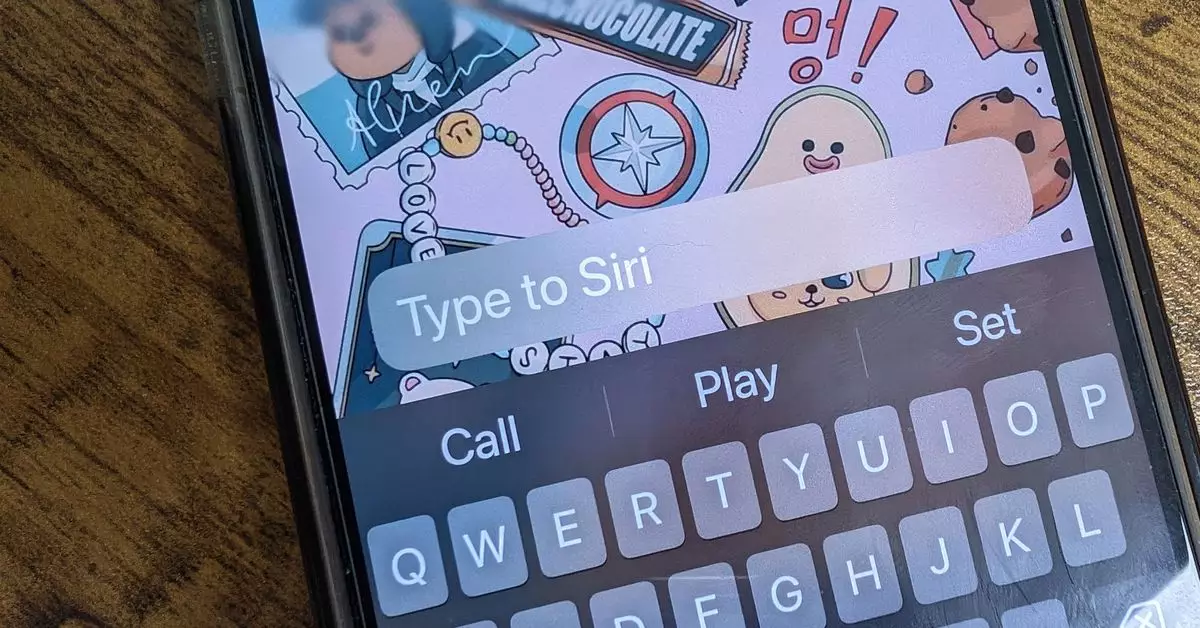As someone who has been covering wearables and health tech for over a decade, the issue of interacting with AI assistants in public has become a major point of contention for me. While it may be convenient to chat with Siri, Google, Alexa, or Meta in the privacy of one’s own home, the thought of doing so in a public setting can be overwhelmingly awkward. The rise of AI gadgets promoting voice interactions, akin to the movie “Her,” has left many users feeling uncomfortable about engaging with AI assistants outside the confines of their homes.
During the recent WWDC keynote, Apple announced an upcoming feature in iOS 18 that allows users to type to Siri instead of speaking out loud. While this functionality can already be accessed through accessibility settings on the iPhone, the update in iOS 18 goes a step further by integrating a dedicated Siri keyboard. This new feature is designed to eliminate the need for vocal commands, offering users the option to type queries or select quick suggestions instead.
Despite advancements in AI technology, conversing with digital assistants can still pose challenges. Many users find themselves altering their speech patterns and overthinking their queries when engaging with AI assistants at home. The added pressure of speaking in public settings, amidst noise and distractions, only heightens the discomfort. The limitations of current AI hardware, such as smart glasses and smartwatches, further exacerbate the frustration of communication breakdowns, leading to a reliance on traditional devices like smartphones.
The reluctance to use voice-controlled assistants in public is not solely rooted in technological limitations but also in human behavior. Studies have shown that a significant number of consumers prefer using voice assistants at home, citing concerns about judgment and the perceived awkwardness of public interactions. Additionally, a lack of trust in voice assistants’ ability to accurately interpret commands contributes to the overall hesitation in utilizing these technologies in public spaces.
Typing to AI assistants offers a level of privacy that vocal interactions cannot replicate. The ability to input queries discreetly allows users to maintain confidentiality in their actions, whether setting reminders, browsing the web, or sending messages. Avoiding the need to vocalize commands in the presence of others alleviates the discomfort associated with potential eavesdropping and ensures a sense of control over personal information.
While voice commands remain a valuable tool, the introduction of typing as an alternative interaction method signifies a shift towards accommodating diverse user preferences. By providing multiple means of engaging with AI assistants, technology companies can offer users greater flexibility in choosing how they interact with their devices. As society continues to evolve, the normalization of public AI interactions may become a reality. However, for now, the option to type to AI assistants serves as a welcome compromise for those who prefer to keep their conversations private.


Leave a Reply